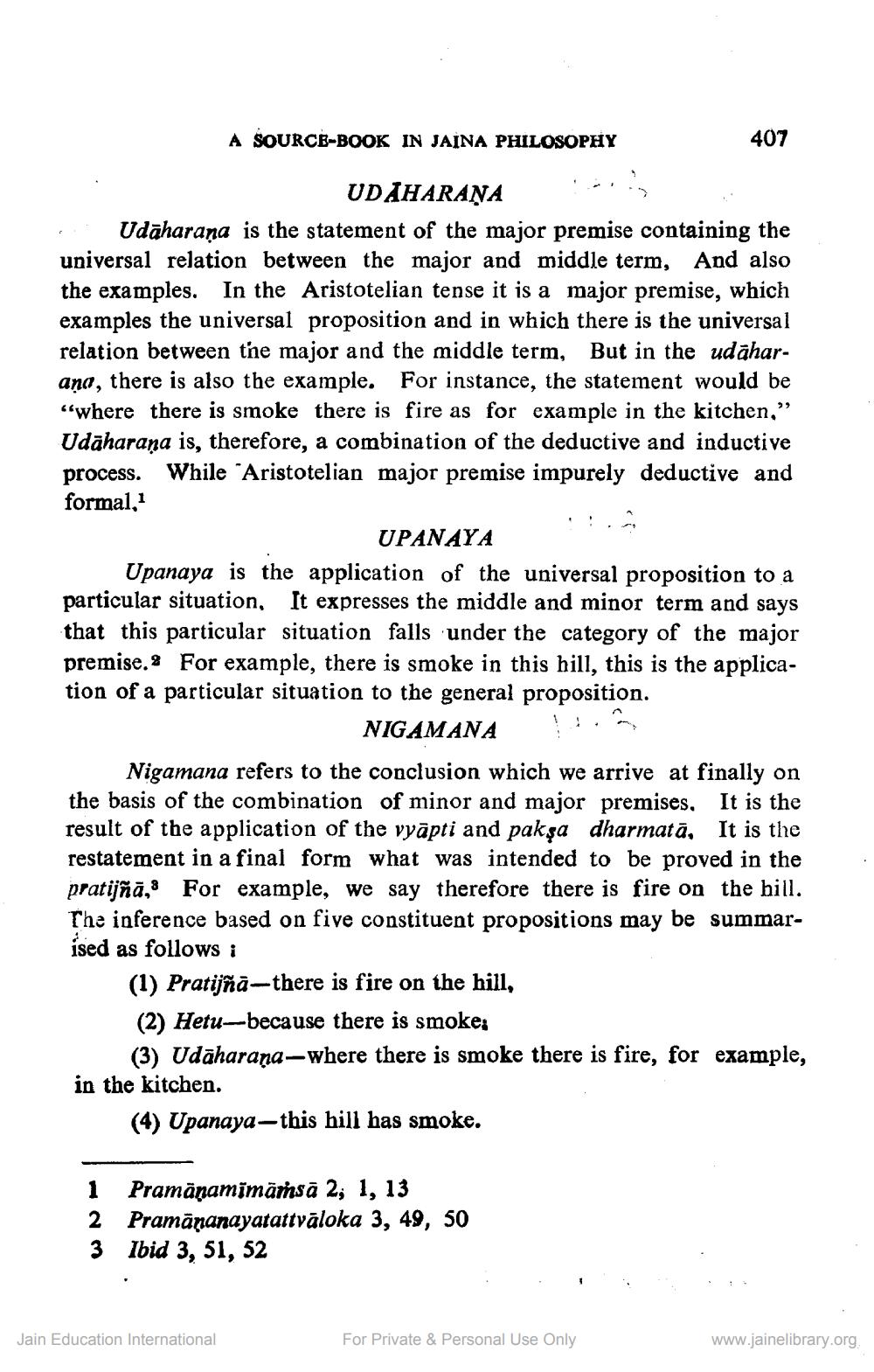________________
A SOURCE-BOOK IN JAINA PHILOSOPHY
UDAHARANA
Udaharaṇa is the statement of the major premise containing the universal relation between the major and middle term, And also the examples. In the Aristotelian tense it is a major premise, which examples the universal proposition and in which there is the universal relation between the major and the middle term, But in the udāharana, there is also the example. For instance, the statement would be "where there is smoke there is fire as for example in the kitchen," Udaharana is, therefore, a combination of the deductive and inductive process. While Aristotelian major premise impurely deductive and formal,1
UPANAYA
Upanaya is the application of the universal proposition to a particular situation. It expresses the middle and minor term and says that this particular situation falls under the category of the major premise. For example, there is smoke in this hill, this is the application of a particular situation to the general proposition.
NIGAMANA
407
Nigamana refers to the conclusion which we arrive at finally on the basis of the combination of minor and major premises. It is the result of the application of the vyāpti and pakşa dharmata. It is the restatement in a final form what was intended to be proved in the pratijñā, For example, we say therefore there is fire on the hill. The inference based on five constituent propositions may be summarised as follows i
(1) Pratijñā-there is fire on the hill,
(2) Hetu-because there is smoke.
(3) Udāharaṇa-where there is smoke there is fire, for example, in the kitchen.
(4) Upanaya-this hill has smoke.
1
Pramāṇamīmāṁsā 2, 1, 13
2 Pramananayatattvāloka 3, 49, 50 3 Ibid 3, 51, 52
Jain Education International
For Private & Personal Use Only
www.jainelibrary.org




